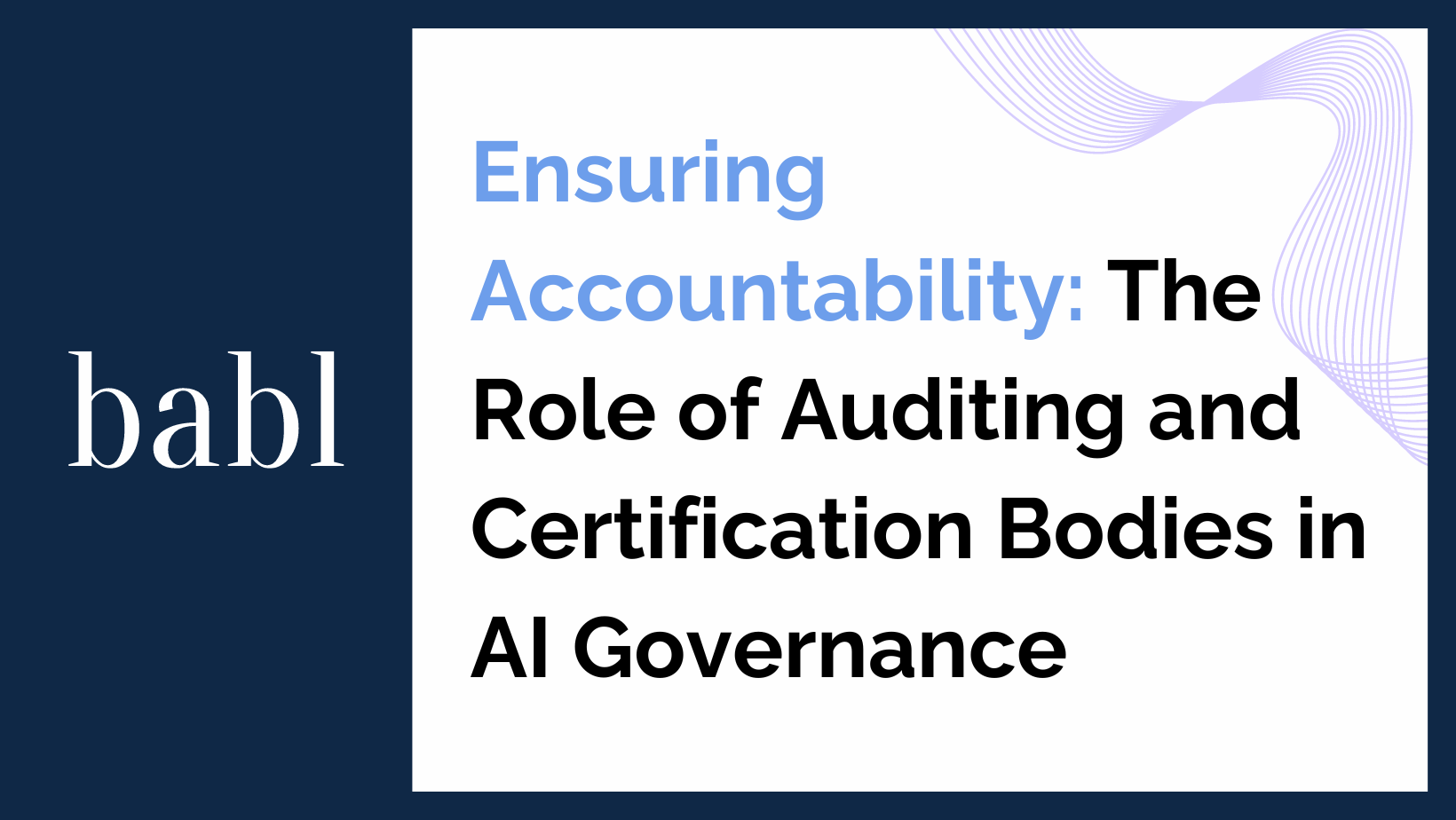Ensuring Accountability: The Role of Auditing and Certification Bodies in AI Governance
As artificial intelligence (AI) technologies become deeply integrated into various sectors of the economy, ensuring their ethical and responsible use is paramount. The complexity and opacity of AI systems pose unique challenges, making traditional oversight mechanisms insufficient. In this context, third-party organizations like BABL AI play a crucial role in auditing and certifying compliance with established AI governance frameworks, such as those developed by the National Institute of Standards and Technology (NIST).
The Need for Independent AI Auditing and Certification
AI technologies can have profound implications, impacting everything from individual privacy rights to broader societal norms. As such, the integrity, safety, and fairness of these systems are of critical concern. Third-party auditing and certification bodies provide an essential layer of trust and transparency by independently assessing AI systems against established standards and frameworks.
-
Enhancing AI Transparency and Trust
One of the primary roles of third-party organizations is to enhance the transparency of AI operations. By independently verifying the claims made by AI developers and deployers, these bodies help demystify the functionalities of complex AI systems for the public. This transparency is crucial for building trust among users and stakeholders, particularly in sectors where AI decisions have significant impacts, such as healthcare, finance, and public services.
-
Promoting AI Accountability
Third-party auditors hold AI-developing companies accountable by ensuring that their systems operate as intended and comply with ethical guidelines, legal standards, and best practices. This involves thorough evaluations of the AI’s decision-making processes, data handling practices, and overall impact on users. Auditing bodies like Babel AI can also help enforce accountability by issuing certifications that AI systems meet specific safety, security, and fairness benchmarks.
-
Facilitating AI Regulatory Compliance
As governments and international bodies begin to implement more rigorous regulations for AI, the role of certification bodies becomes even more critical. These organizations can bridge the gap between complex AI technologies and regulatory frameworks by translating legal requirements into technical assessments. They ensure that AI systems not only comply with current laws but are also prepared to adapt to future regulatory changes.
-
Supporting Continuous AI Improvement
Certification is not just about assessing compliance; it’s also about fostering a culture of continuous improvement among AI developers. Auditing bodies often provide feedback that can help companies enhance their AI systems, making them safer and more effective. This ongoing process helps drive the industry forward, encouraging innovation within the boundaries of ethical and responsible AI development.
Challenges Faced by AI Auditing and Certification Bodies
-
Keeping Pace with AI Development
AI technology evolves at a breakneck pace, and one of the significant challenges for auditing bodies is staying updated with the latest developments. They must continuously update their certification criteria and auditing techniques to cover new AI functionalities and potential risks.
-
Technical Expertise
Evaluating AI systems requires a high level of technical expertise in machine learning, data science, and related fields. Auditing organizations must maintain a team of experts who are not only well-versed in current technologies but are also capable of understanding emerging AI trends and techniques.
-
Global Standards and Consistency
Because AI is global, auditing must be internationally recognized. Certification bodies are working together to harmonize standards and ensure consistency across borders.
Conclusion
The role of independent auditing and certification is crucial for AI governance. Organizations like BABL AI help ensure that systems remain ethical, transparent, and accountable. At the same time, they foster improvement and innovation. Looking ahead, global cooperation among auditors will be key to safeguarding rights while enabling AI’s benefits.
Need Help?
If you’re wondering how NIST AI Framework, and other AI regulations around the world, could impact you, don’t hesitate to reach out to BABL AI. Their Audit Experts are ready to provide valuable assistance while answering your questions and concerns.





